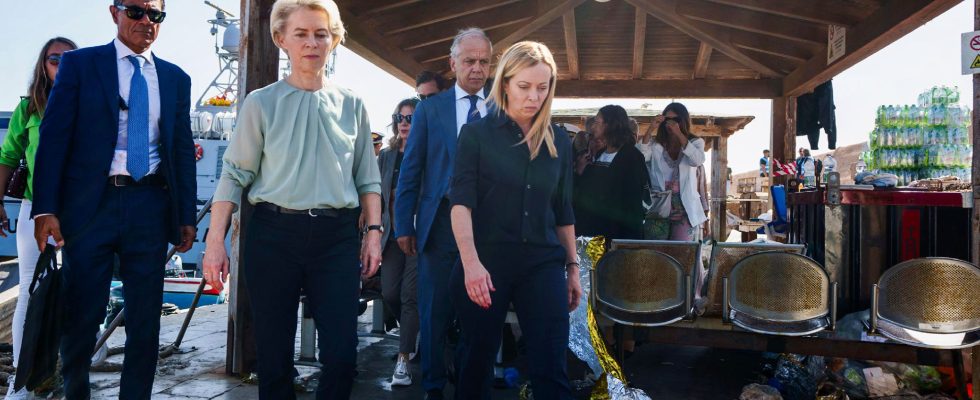The June 2024 European elections have started in Lampedusa. In mid-September, more than 7,000 migrants arrived in twenty-four hours on this Italian island, the closest to the Tunisian coast. A number greater than that of the local population. Less than a year before an election from which they hope to draw their moment of glory, the parties of the extreme right and the nationalist right are drinking whey. From Scandinavia to Italy, from France to Germany, their current rise in Europe has a direct link with immigration or with the perception of immigration, whatever the reality of the figures which are presented variably depending on the expected effects. Hungary and Poland have made closing borders a battleground and an element of their identity.
The distribution of political forces in the European Parliament will partly depend on the state of the migration crisis in the days or weeks preceding the vote. This observation is not lost on those who can benefit from it. Vladimir Putin, for whom a nationalist wave in the European Parliament would improve matters, has already experimented with the cynical method of migratory blackmail. In November 2021, he tried to weaken Europe by taking thousands of Syrians to Belarus, before pushing them towards the Polish border. The question of using migrants as a weapon of destabilization arose again in Lampedusa, where some survivors declared that they had not paid smugglers to cross the Mediterranean. The control by Russian militias of Mali and part of the Maghreb, where anti-French sentiment is growing, provides the Kremlin with a potential lever of power over the election.
Achilles’ heel
This eminently complex issue of immigration is the Achilles heel of the European Union, one of the main axes of division between the countries of the South, exposed on the front line and calling for more European solidarity, and those of the center , Poland and Hungary in the lead who, more protected from foreign arrivals, are in favor of a national regulation and everyone for themselves. The Italian Giorgia Meloni can always run to count on her supposed allies, the Hungarian Viktor Orban and the Pole Mateusz Morawiecki, or even the French Marine Le Pen: neither wants to hear about a reform of asylum and migration intended to relieve the countries of first entry, including Italy as a priority.
The national-populist parties which make stopping immigration their campaign argument only have empty slogans to offer. Once in power, they only ever demonstrated their incompetence. Illegal immigration has doubled in the United Kingdom since Brexit, which was supposed to provide a miracle solution to “border control”. Giorgia Meloni was elected in Italy on a similar promise. Failure: a year later, even more migrants land on Italian soil.
“The goal of the far right is not to solve immigration but to make it a problem and above all not to solve it”
Contrary to the nonsense brandished by nationalist leaders, no regulation of immigration is possible at the national level. Their bad faith consists of shouting about the “powerlessness of Europe”, when immigration, like the right of residence, is precisely not a Community competence. Their grievances come back without saying it to accusing Europe not of doing too much, but of not doing enough. What they refuse to admit is perfectly correct: the growing influx of migrants on our continent should not lead to illusory closures of national borders, but to a strengthening of European borders. A European immigration policy… which the same nationalists oppose. Because the goal of the far right is not to solve immigration but to make it a problem and above all not to solve it, because it is the chaos from which they profit. As proof, the National Rally did not support in the European Parliament the provisions which make it possible to examine asylum requests upon arrival, and therefore to immediately send back those who are refused.
The possibility of a victory for the nationalist right and the far right in the European Parliament will be played out on this issue of immigration as well as that of support for Ukraine, two of the major challenges which are also the main factors of divisions national and intra-European. While the EU has shown itself to be more united than it has ever been in the face of Russia’s war of invasion in Ukraine, immigration is the subject – very real but manipulable – which can cause its breakup .
* Marion Van Renterghem is a senior reporter, winner of the Albert-Londres prize and author of “Le trap Nord Stream” (Les Arènes)
